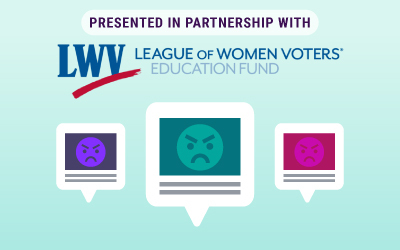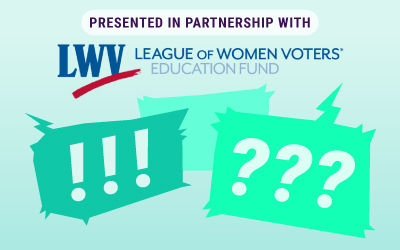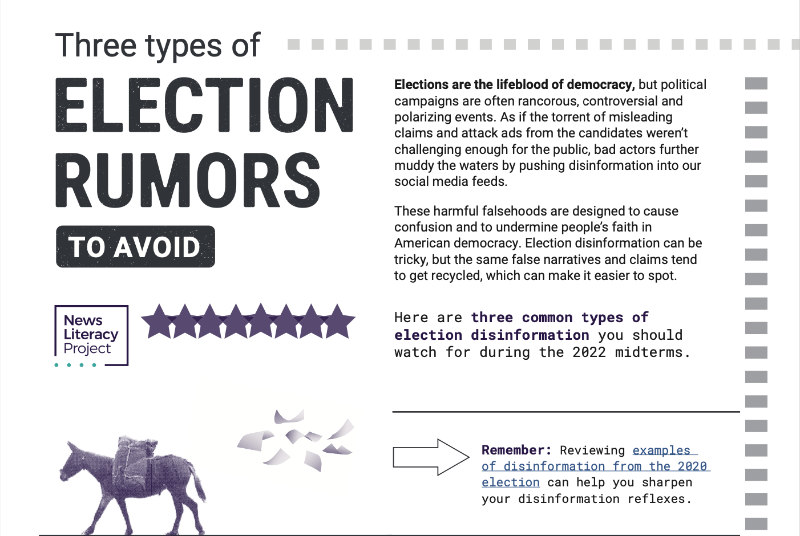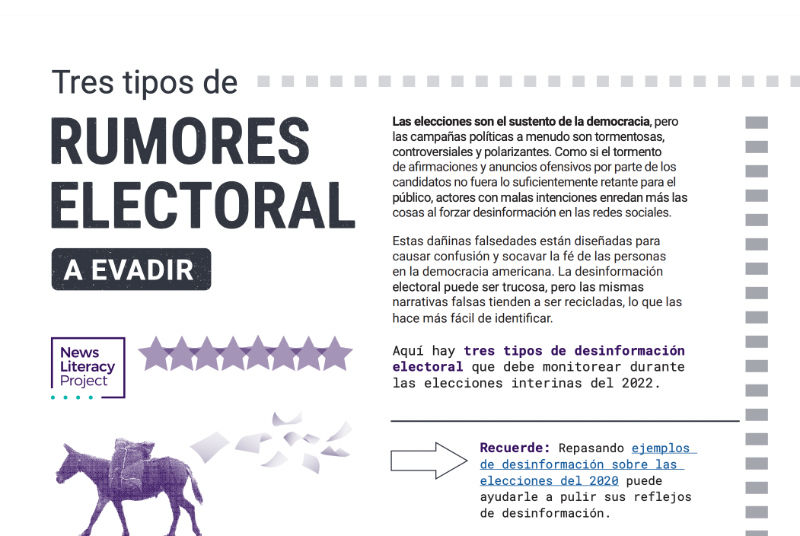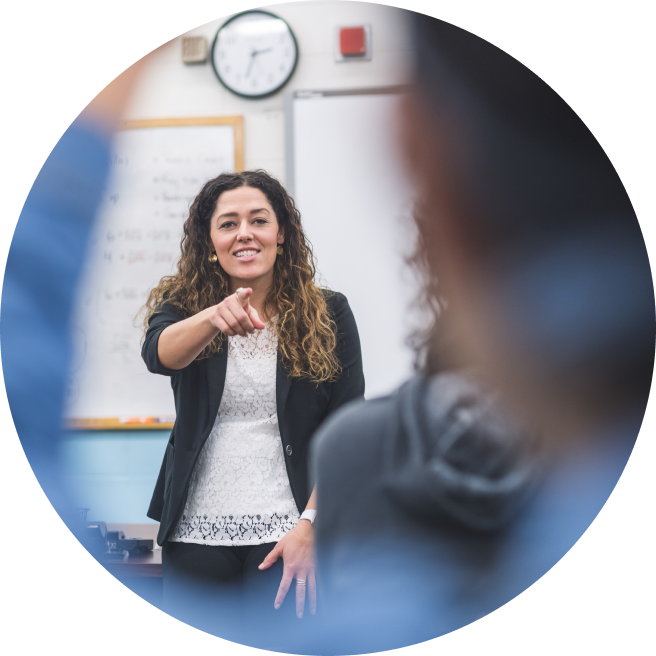Election 2022: Be informed, not misled
Misinformation surrounding our electoral processes has created an existential threat to our democracy. For any number of reasons — be it evidence-free allegations of voter fraud and confusion about mail-in ballots, or election meddling by foreign actors and misleading advertisements — too many of us have doubts about the outcome of legitimate elections. That’s why we created this page.
News literacy plays a crucial role in preparing us to be well-informed voters. Becoming news-literate helps us develop the skills needed to recognize false information about elections, candidates and issues. And it empowers us to find authoritative and trustworthy sources so we all can become equal and engaged participants in our most vital and basic democratic process. News literacy is nonpartisan and never tells you who or what to vote for. It simply prepares you to make your own well-informed decisions about the day’s issues — and during election season, before you mark your ballot.
We’re proud to offer these resources that will help all registered voters protect their right to make their voices count!
More resources
How and where to vote:
- Vote 411, League of Women Voters Education Fund
- USA.gov voter information (federal government voting and elections guide)
- #TrustedInfo2022, National Association of Secretaries of State
- Election FAQs, National Association of State Election Directors
- Vote.gov, USAgov and US Election Assistance Commission
- Your guide to the 2022 midterm elections, The Washington Post
- Midterm Monitor, Alliance for Securing Democracy at the German Marshall Fund of the United States and the Brennan Center for Justice
Avoiding election misinformation:
- Election misinformation, Brennan Center for Justice
- The Midterms, Explained, The Associated Press
- 5 realidades sobre el proceso electoral en Estados Unidos (y algunos mitos), Brennan Center for Justice y Factchequeado
- Cuidado con las imágenes editadas en épocas electorales, Factchequeado
- Midterms are Coming: How to Discern Information From Manipulation Pocket Collection
For educators:
- Missed our EdWeb webinar Informed or influenced? Media and news literacy skills for election season and beyond? Watch the recording here.
- Check out our Voting and Elections collection on Flip for classroom discussion and lesson plan ideas related to election misinformation in the news, breaking out of political “bubbles,” spotting imposter accounts and fake posts, and more.
- Instructing high school students? Browse our 2022 Election Misinformation Flipboard page for recent articles about misinformation related to the midterm elections.
- Students can explore our “Three types of election rumors to avoid” infographic. Then, have them work through our Dig Deeper: Election Misinformation think sheet to reflect on election misinformation.
- Another classroom activity idea: Students can view this News Goggles interview with Seana Davis, of the Reuters Fact Check team, to learn about monitoring, detecting and debunking false claims online. Then, use our Dig Deeper think sheet about verifying online information.
Making sense of election data
Data, in the form of statistics, graphics, numerical comparisons and more, can help us better assess and understand the world around us. Data is often the foundation for research studies, news articles, social media posts and the stories people write and tell to make an argument or prove a point. It’s essential that we are able to accurately judge the data we encounter, especially before heading to the polls. We addressed these questions and more in our 2020 election series “Making sense of data,” presented by our partner SAS, a pioneer in the data management and analytics field.
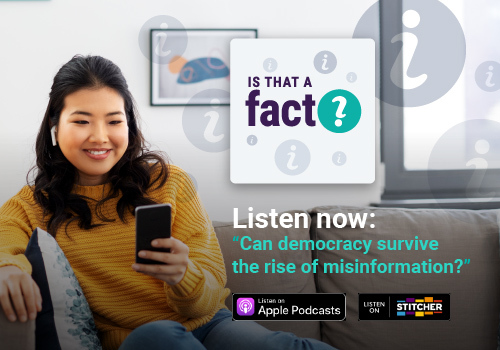
Democracy in peril
Listen to the first season of our podcast from 2020 that explored whether democracy can survive the rise of misinformation. Featuring: Kara Swisher, Maria Ressa, Enrique Acevedo, Joan Donovan, Brendan Nyhan, Jane Lytvenenko, and more.

